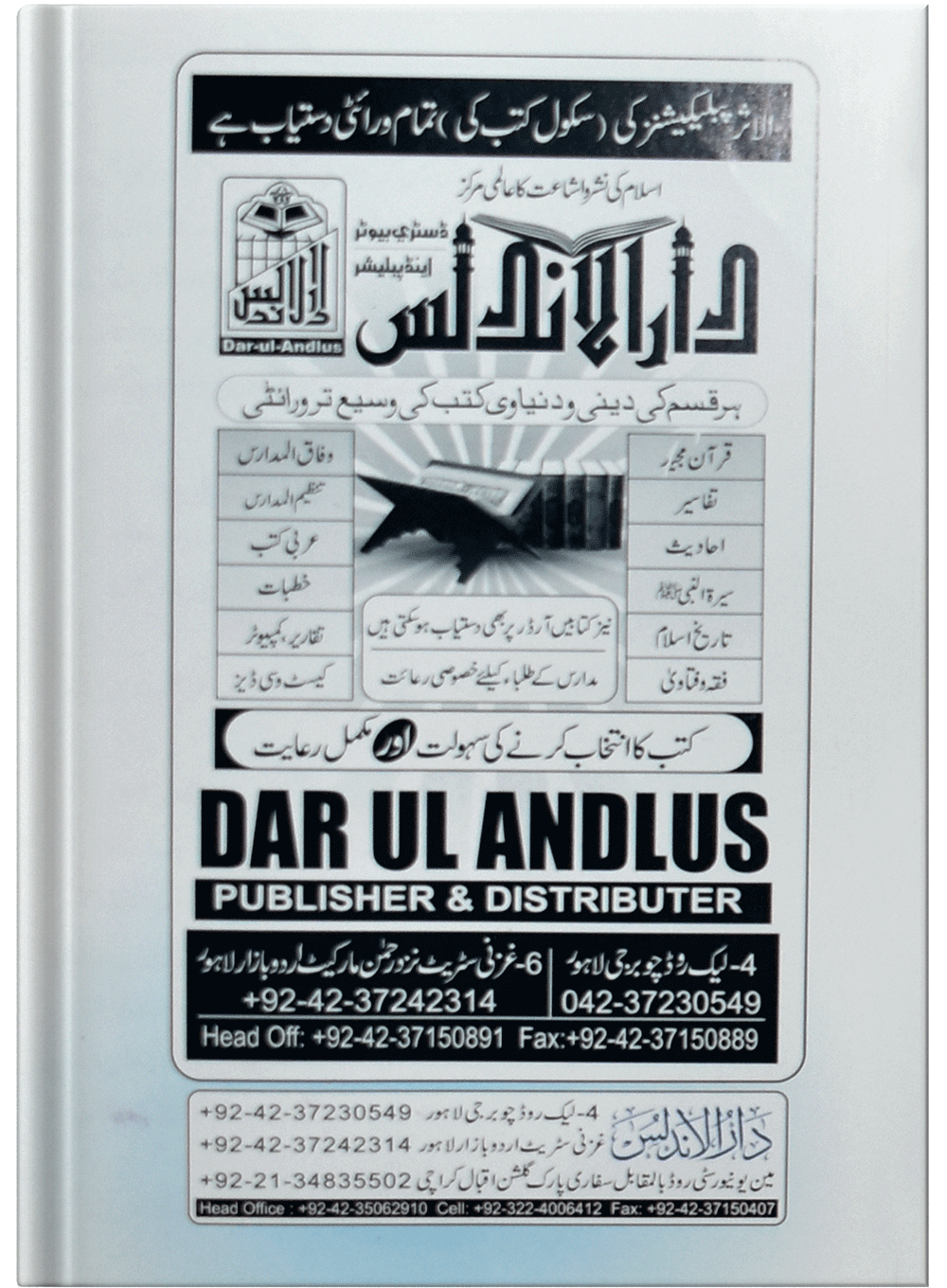1
/
of
3
Dar Ul Andlus
Ahkam E Ushar
Ahkam E Ushar
Regular price
Rs.60.00 PKR
Regular price
Sale price
Rs.60.00 PKR
Unit price
/
per
Shipping calculated at checkout.
Couldn't load pickup availability
Share
Discover the insightful world of Islamic agricultural taxation with "Ahkam-e-Ushar," an essential guide that delves deep into the rulings of Ushr. This book is not just a collection of laws; it is a comprehensive resource for scholars, farmers, and anyone interested in the principles of Islamic taxation. Written in Urdu, it is designed to cater to a diverse audience seeking to understand the significance of Ushr in their agricultural practices.
- Comprehensive Coverage: The book thoroughly explains the concept of Ushr, including its definition, significance, and the obligatory nature of this charitable tax on agricultural produce.
- Legal Foundations: Gain insights into the Quranic injunctions and Hadith that serve as the legal framework for Ushr, ensuring a robust understanding of its religious importance.
- Practical Implementation: Learn about the practical applications of Ushr in modern agriculture, making it a valuable resource for current farmers looking to integrate these principles into their practices.
- Authoritative Insights: Authored by Hafiz Abdus Salam Bin Muhammad Bhutvi, a recognized figure in Islamic scholarship, this book provides an authoritative perspective on agricultural taxation.
- Accessible Language: Written in Urdu, the book ensures accessibility for those who prefer to study in their native language, allowing for a greater understanding of intricate concepts.
- Compact Size: Measuring 14x21 cm, this 18-page guide is easy to handle and perfect for on-the-go reading, making it convenient for busy scholars and farmers alike.
- Publication Quality: Published by Dar Ul Andlus, you can trust in the quality and reliability of this book as a significant resource in Islamic literature.
- Weight: At only 0.172 kg, it's lightweight and portable, fitting easily into any bag or briefcase.
Whether you are a scholar, a farmer, or simply curious about the principles of Islamic taxation, "Ahkam-e-Ushar" is your go-to resource for understanding and implementing Ushr in today's agricultural landscape.






